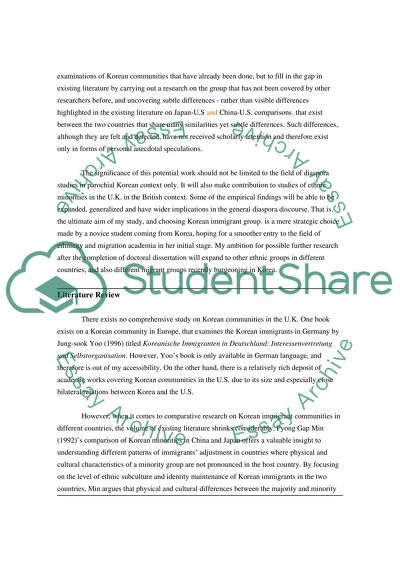Cite this document
(“Korean diaspora communities in Britain and the United States process Essay”, n.d.)
Korean diaspora communities in Britain and the United States process Essay. Retrieved from https://studentshare.org/miscellaneous/1527964-a-comparative-study-on-korean-diaspora-communities-in-britain-and-the-united-states-process-of-community-building-and-notion-of-homeland
Korean diaspora communities in Britain and the United States process Essay. Retrieved from https://studentshare.org/miscellaneous/1527964-a-comparative-study-on-korean-diaspora-communities-in-britain-and-the-united-states-process-of-community-building-and-notion-of-homeland
(Korean Diaspora Communities in Britain and the United States Process Essay)
Korean Diaspora Communities in Britain and the United States Process Essay. https://studentshare.org/miscellaneous/1527964-a-comparative-study-on-korean-diaspora-communities-in-britain-and-the-united-states-process-of-community-building-and-notion-of-homeland.
Korean Diaspora Communities in Britain and the United States Process Essay. https://studentshare.org/miscellaneous/1527964-a-comparative-study-on-korean-diaspora-communities-in-britain-and-the-united-states-process-of-community-building-and-notion-of-homeland.
“Korean Diaspora Communities in Britain and the United States Process Essay”, n.d. https://studentshare.org/miscellaneous/1527964-a-comparative-study-on-korean-diaspora-communities-in-britain-and-the-united-states-process-of-community-building-and-notion-of-homeland.


